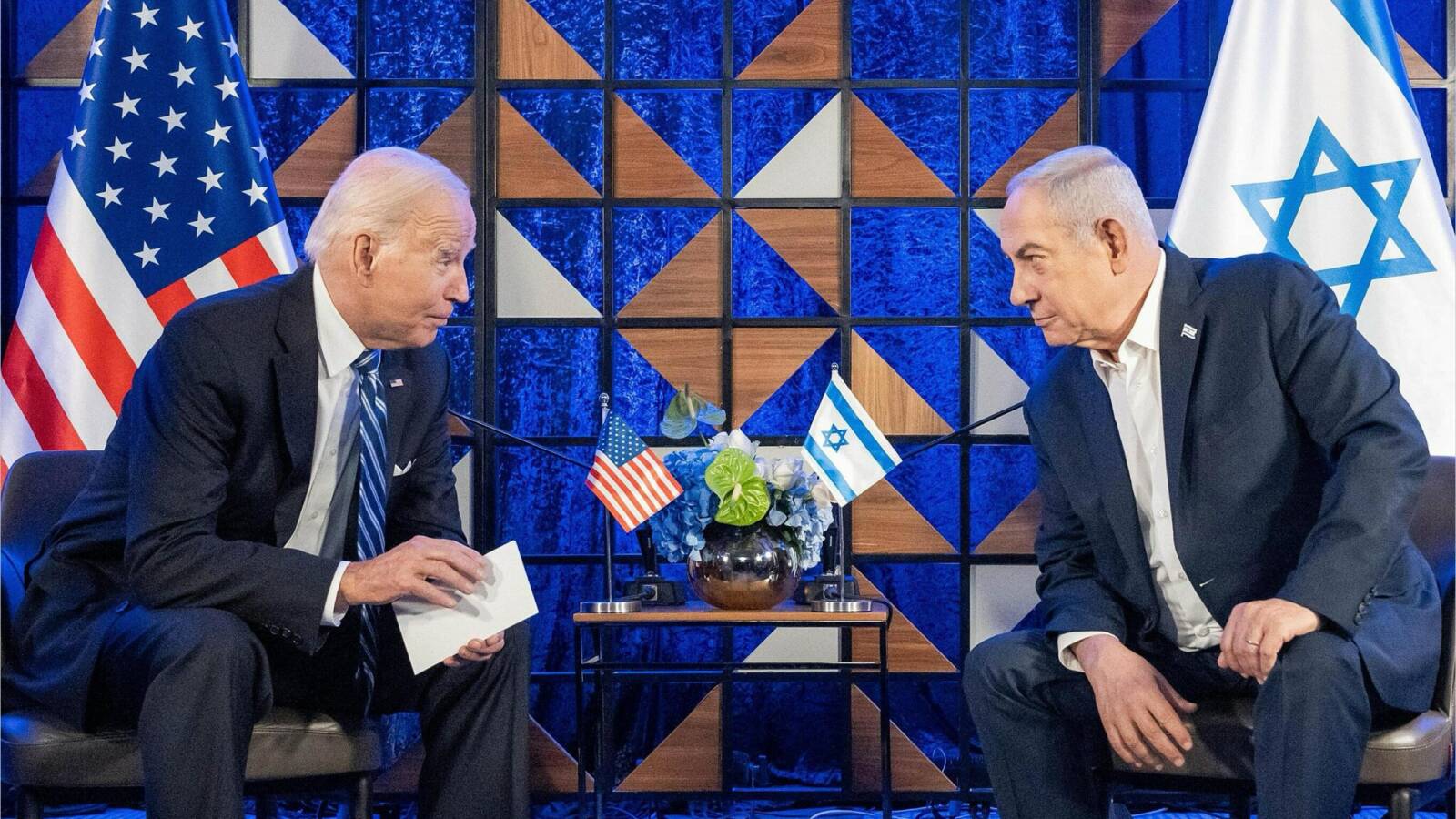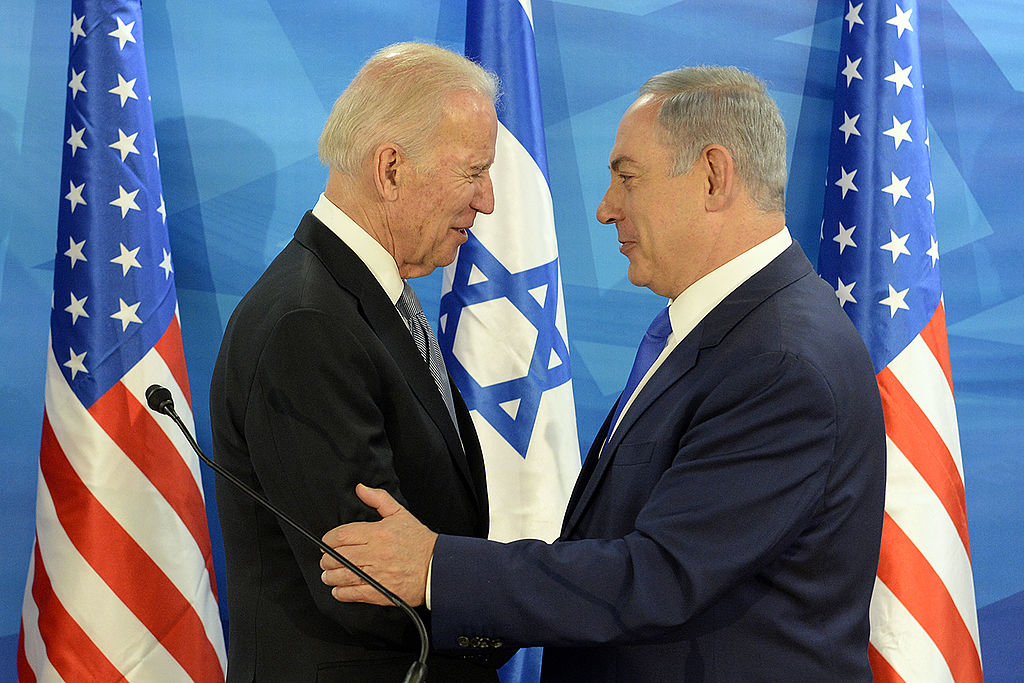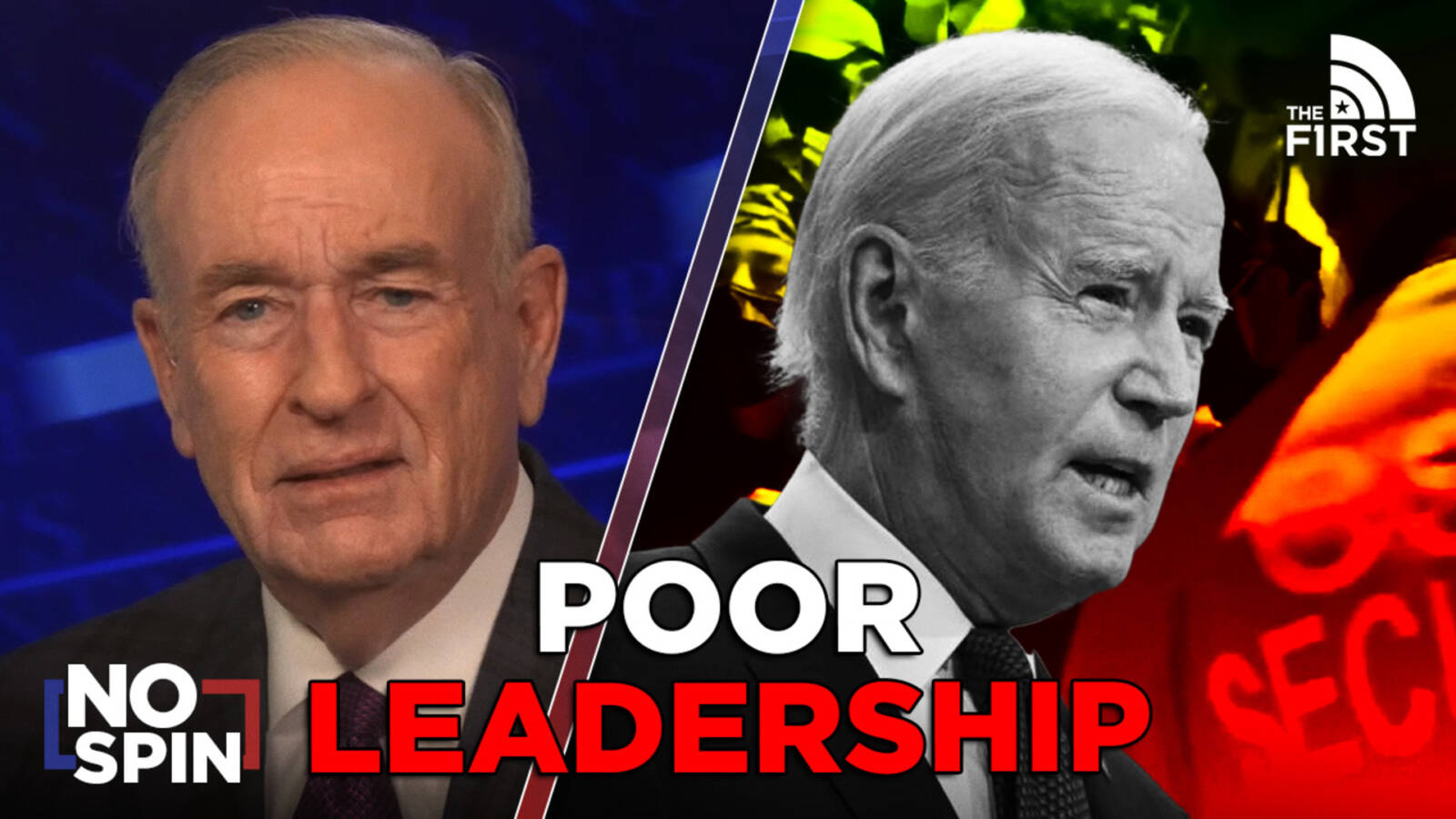President Joe Biden plans to head to Israel Wednesday in hopes to avoid a war that might draw the U.S. and Russia into its expanding fireball. He is going for a few stated reasons, first “to stand in solidarity in the face of Hamas’s brutal terrorist attack,” and second to “address dire humanitarian needs, meet with leaders, and make clear that Hamas does not stand for Palestinians’ right to self-determination.”
Biden will, of course, be greeted by Israeli’s emergency government led by PM Benjamin Netanyahu. Then he will travel to Jordan to meet King Abdullah II, along with Egyptian President Abdel Fatah El-Sisi and the head of the PLO, Mahmoud Abbas, who leads the Palestinians in the West Bank. Gaza is ruled by Hamas, which was elected by Gazans in 2006.
What Biden hopes to really accomplish is to set a timeline, with an end, to the Israeli operation, by having a coalition of Arab states and the PLO on board to take over in Gaza when Hamas is deposed. Make no mistake, Hamas will be deposed by Israel. The question is what happens afterward. Without a plan, Israel will face what the U.S. had in Iraq and Afghanistan: a long stay with a bloody end (except Israel can’t just go home).
Also, Biden has some ultimately more important goals. Israel was set to go in to Gaza last weekend, after calling up 360,000 reserves, the largest mobilization in the country’s history since the Yom Kippur War in 1973. The IDF cited the weather as the reason for the delay in the beginning of the ground operation, but that’s not truly what’s driving the delay. Israel is still stunned by the horrific and savage events of 10/7, and emotions are running high. Going in on the ground this soon would likely result in actions that would give Hamas ammunition in the friendly media (the media is always friendly to Hamas since they cultivate it).
Hamas wanted Israel to charge into its trap, and simultaneously be able to show dead Israeli soldiers and dead Palestinian children to the cameras. Waiting gives more time for intelligence assets and the air force to root out the traps and rocket stores, while letting the ground troops keep their heads. Another reason Israel wants to delay is because they aren’t sure exactly what Hizbollah will do from the Lebanon border in the north. There have been incursions, drone swarms, and rocket launches from both Lebanon and Syria, but nothing massive, in the last few days. Israel needs time to prepare their defenses and response to a large move in the north.
Iranian insane leader Ali Khamenei promised he would intervene if Israel went in to Gaza, and privately the Iranian foreign mission passed a message through the U.N. to Israel warning them. Without a doubt, Israel’s response is probably somewhere along the lines of “take this nuke and shove it very far up your…” Practically speaking, Iran’s direct involvement is troubling. This is why the U.S. ordered not one, but two carrier strike groups to loiter in the area. U.S. armed services have also issued orders for around 2,000 troops to be “ready to deploy” to the region, joining the 4,000 sailors and Marines, with well over 140 advanced jets on the carriers. Additionally, there are A-10 and F-15 squadrons ready.
America’s strong response is not just to make Israel feel warm and fuzzy–Israel can fight its own wars. It’s to make the Arab states such as Saudi Arabia feel that if Iran makes a move, they can depend on the U.S. to defend them. The show of force goes a long way toward getting the cooperation of the PLO and Abbas (whose language is money), and having the Saudis support the plan.
If Biden’s plan works, Israel will get to go in to Gaza with the silent blessing of its Arab neighbors (except Hizbollah and Syria of course), destroy Hamas, and have the PLO take over when they finish the job. That doesn’t take care of Hamas’s leader Ismail Haniyeh, who is comfortably living at the Four Seasons hotel in Doha, Qatar. But I am thinking there’s a plan to buy off Haniyeh and the Qataris, who have funded Hamas for years while the Saudis gave the cold shoulder.
All of this can easily go off the rails.
Jordan, Egypt and the Saudis fear the Muslim Brotherhood, and they also fear Iran. Mostly, these leaders fear being deposed. There may simply not be room for Biden or Secretary of State Antony Blinken to make a deal. (Even Donald Trump said this was a hard deal to make.)
Plus, seeing America appear to be in Israel’s corner (or its pocket) might inflame already anti-American sentiment in the Arab countries. Whether Biden succeeds or not, Israel will likely be going in to Gaza very soon, though almost certainly not while Biden is in their country. If Biden fails, he will have to decide whether the U.S. will pack up and distance itself from Israel, or fully engage, which increases the likelihood we will be in a shooting war in the Middle East, potentially pitting us directly against Russian or Iranian (IRGC) troops.
The Russians, Chinese, and Iranians are forming an axis of evil, supplying drones to fight the Ukrainians, supplying missiles to Hamas and Hizbollah, and any time now, nuclear capability for Tehran. Israel will not allow Tehran to have nukes, even if it means taking terrible losses preventing it. But can Israel defend its own borders from the south and the north, while keeping Iran at bay? The last resort of a desperate country in a time of existential crisis is the nuke. In 1973, Gold Meir fueled 13 missiles in full view of U.S. satellites to persuade President Nixon to get involved militarily, and keep the Soviets from taking Egypt’s side with their own troops. She meant it.
Biden’s bid to be peacemaker in the Middle East might succeed. I hope it does. I really hope we can get rid of Hamas and keep the wider peace. But it could also touch off a series of events that results in World War III. Your sons and daughters may see this week as a crucial time in history.
Follow Steve on Twitter @stevengberman.
The First TV contributor network is a place for vibrant thought and ideas. Opinions expressed here do not necessarily reflect those of The First or The First TV. We want to foster dialogue, create conversation, and debate ideas. See something you like or don’t like? Reach out to the author or to us at ideas@thefirsttv.com.







